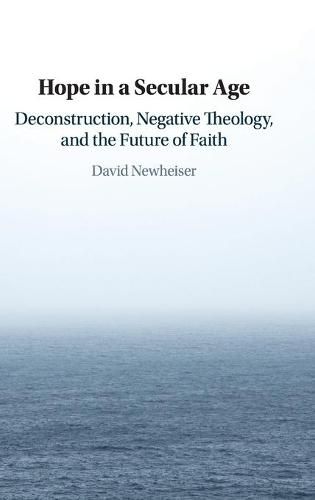Readings Newsletter
Become a Readings Member to make your shopping experience even easier.
Sign in or sign up for free!
You’re not far away from qualifying for FREE standard shipping within Australia
You’ve qualified for FREE standard shipping within Australia
The cart is loading…






This book argues that hope is the indispensable precondition of religious practice and secular politics. Against dogmatic complacency and despairing resignation, David Newheiser argues that hope sustains commitments that remain vulnerable to disappointment. Since the discipline of hope is shared by believers and unbelievers alike, its persistence indicates that faith has a future in a secular age. Drawing on premodern theology and postmodern theory, Newheiser shows that atheism and Christianity have more in common than they often acknowledge. Writing in a clear and engaging style, he develops a new reading of deconstruction and negative theology, arguing that (despite their differences) they share a self-critical hope. By retrieving texts and traditions that are rarely read together, this book offers a major intervention in debates over the place of religion in public life.
$9.00 standard shipping within Australia
FREE standard shipping within Australia for orders over $100.00
Express & International shipping calculated at checkout
This book argues that hope is the indispensable precondition of religious practice and secular politics. Against dogmatic complacency and despairing resignation, David Newheiser argues that hope sustains commitments that remain vulnerable to disappointment. Since the discipline of hope is shared by believers and unbelievers alike, its persistence indicates that faith has a future in a secular age. Drawing on premodern theology and postmodern theory, Newheiser shows that atheism and Christianity have more in common than they often acknowledge. Writing in a clear and engaging style, he develops a new reading of deconstruction and negative theology, arguing that (despite their differences) they share a self-critical hope. By retrieving texts and traditions that are rarely read together, this book offers a major intervention in debates over the place of religion in public life.